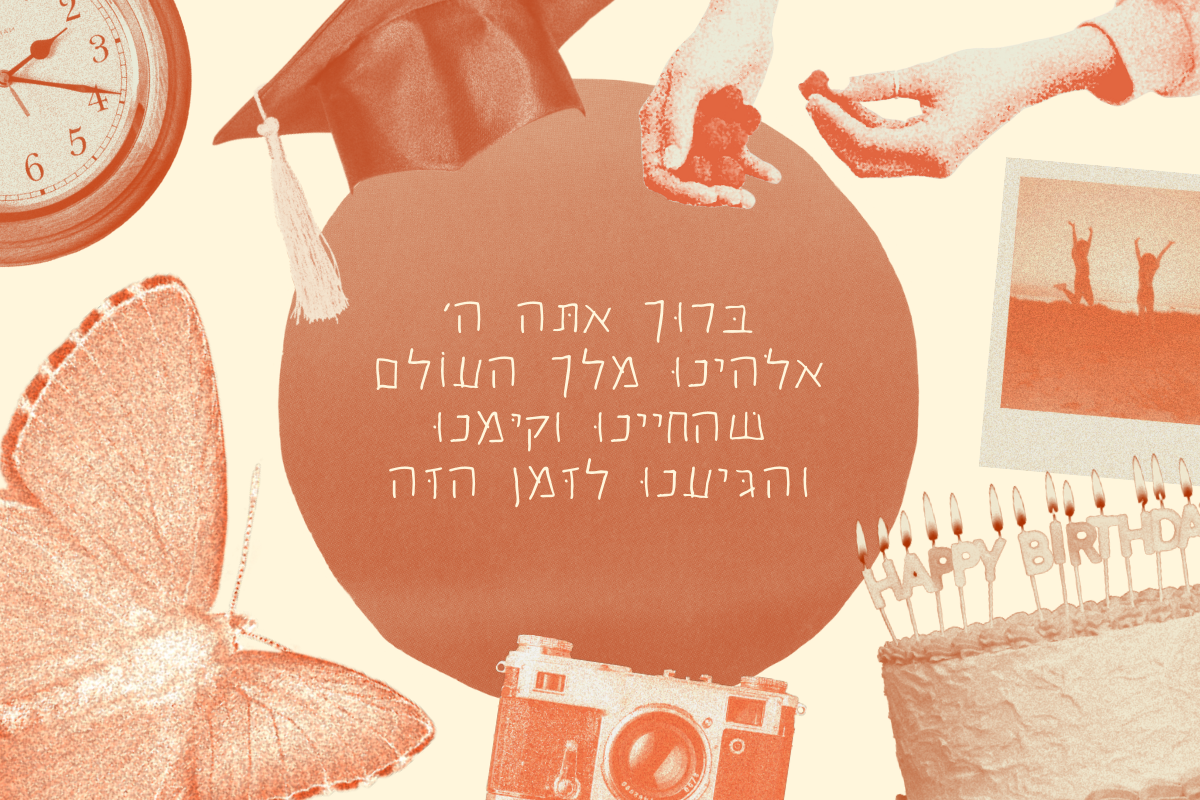Growing up in Southern California, you would think I would be used to seeing the sunset over the Pacific Ocean. You might think I wouldn’t be overcome by awe. After all, it’s a frequent occurrence to see the sky painted in pinks and oranges as you hear the crash of waves — but each time I’m taken aback by the sheer beauty of the entire picture.
It’s not just me. Most evenings on Instagram, I see story after story from my Los Angeles friends of the sun setting for the night, begging me and everyone else to watch alongside them. We’re clearly grateful for this small daily miracle and posting on Instagram is our Gen-Z way of acknowledging it.
But lately I’ve been thinking about something a little more everlasting than an Instagram story. I’ve been thinking about the prayer that Judaism offers us to acknowledge our gratitude: the Shehechiyanu.
Why don’t I say it more often? After all, the English version of the prayer is very simple: “Blessed are You Eternal Spirit who has given us life, sustained us and allowed us to arrive in this moment.”
It takes less than a minute to say it, and it is literally designed to be said anytime one realizes the miracle of the present moment — but it is more often than not relegated to synagogues and reception halls.
I was at a family Shabbat recently and one relative stopped us as we were about to eat and said: “Shouldn’t we say the Shehechiyanu?” The whole group hadn’t been together in ages and with everything in the world going on, it felt especially poignant — almost necessary. So we said the prayer together, and the moment had an extra weight of significance. It reminded us that even in the routine of Shabbat, celebration is always worthwhile.
If I play back the moments of my life that included the small prayer actually said aloud, it would be a short reel: synagogue, the first night of Hanukkah at home, b-mitzvahs, graduations, brises and baby namings, and some events at my Jewish day school. Banner moments, sure. But the small moments that made me smile, the ones I will remember in the years to come — those didn’t make the cut.
Why didn’t I say the Shehechiyanu on the first days of school or the last days of school? Why not at the beginning of a new relationship or the moments when I realized someone really knows me? Why not at reunions, or when I received an exciting job offer, or after I ate a particularly excellent meal in a new city? Why didn’t I actually vocalize — specifically in a Jewish way — how lucky and grateful I felt in each of those instances? After all, it’s so easy to do. Gratitude goes so far beyond me half-jokingly saying “baruch hashem” when I find my pair of keys that I thought were gone forever. But it’s not something that’s built into my life — yet.
The day of my college graduation, I asked my family if we could say the Shehechiyanu before we left the car and the mishegas of the day began. It wasn’t at all routine and I don’t think we had ever said the prayer together outside of an explicitly Jewish setting, but it felt necessary. Being a part of the COVID-cohort of students graduating college, the fact that I even had an in-person graduation felt like a miracle and I didn’t want to let the gravity and the beauty of the moment go unacknowledged. The graduation wasn’t in a synagogue and it wasn’t a Jewish life event, but it was special all the same, so why not use this prayer? We said it in a car in my college parking lot at 7 a.m. — not in a reception hall or synagogue — but it held the same weight.
So now, as we are about to enter a new year, I’m thinking about how I can incorporate this specific prayer into my life in a more intentional way. (Something about “new year, new me,” right?) The Shehechiyanu doesn’t require giving thanks for being happy; it is just an expression of gratitude that we’re here.
I can’t turn back time (as much as I’d like to try), but if I think back to all the moments where I wish I said the prayer, it reminds me of just how grateful I am for them. I wish I had said it when I got into college, when I graduated high school, so many moments the weekend of my college graduation, the first hug after the COVID-19 lockdown, when I met some of the people that would become my closest friends, for all of the unexpected moments that yielded the absolute best results.
If I’m honest with myself (and with you), I can be a bit of a Pollyanna. I like to believe that after every single bad book I read, there’s a great one around the corner, and every batch of cookies I burn means that I’m that much closer to a batch that comes out perfectly golden brown. Though so much of the world can feel terrifying, it’s still important to express awe and appreciation in the moments that inspire it.
In 2024, I’m planning to say the Shehechiyanu much more often. I want to find the moments in life that call for it and acknowledge their importance with this prayer in places beyond a synagogue setting. I know there will be many, many moments that call for the Shehechiyanu every day — starting with the awe-inspiring Southern California sunsets.



